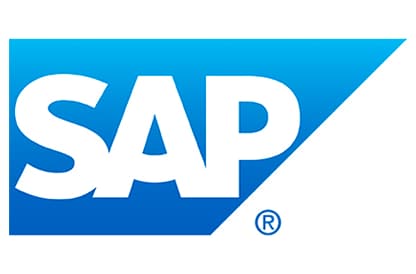Why OpenText
Why OpenText
Overview Why OpenText
OpenText brings decades of expertise to help you unlock data, connect people and processes, and fuel AI with trust
Manage and connect data
Unify data seamlessly across your enterprise to eliminate silos, improve collaboration, and reduce risks
AI-ready information
Get AI-ready and transform your data into structured, accessible, optimized information
Built-in security and compliance
Meet regulatory and compliance requirements and protect your information throughout its lifecycle
Empowering people
Overview Empowering people
OpenText helps people manage content, automate work, use AI, and collaborate to boost productivity
Customers
See how thousands of companies around the world are succeeding with innovative solutions from OpenText
Employees
Our people are our greatest asset; they are the life of the OpenText brand and values
Corporate Responsibility
Learn how we aspire to advance societal goals and accelerate positive change
Partners
Find a highly skilled OpenText partner with the right solution to enable digital transformation
How we compare
Content Management
Service Management
Deploy anywhere
Overview Deployment options
Explore scalable and flexible deployment options for global organizations of any size
Sovereign cloud
Local control. Global scale. Trusted AI
Private cloud
Unlock the value of the cloud while maintaining control and compliance
On-premises
Maintain full control of your data on your own infrastructure
Public cloud
Protect, scale, and use business information in your cloud of choice
AI leadership
Overview Aviator AI
See information in new ways
OpenText™ Aviator™ AI
AI that understands your business, your data, and your goals
OpenText™ MyAviator
Say hello to faster decisions. Your secure personal AI assistant is ready to get to work
OpenText™ Business Network Aviator™
Gain better insights with generative AI for supply chains
OpenText™ Content Aviator™
Power work with AI content management and an intelligent AI content assistant
OpenText™ Cybersecurity Aviator™
Improve your security posture with AI cybersecurity and agile threat detection
OpenText™ DevOps Aviator™
Enable faster app delivery, development, and automated software testing
OpenText™ Experience Aviator™
Elevate customer communications and experiences for customer success
OpenText™ Fax Aviator™
Turn every fax into instant action with AI
OpenText™ Service Management Aviator™
Empower users, service agents, and IT staff to find the answers they need
Aviator AI
Overview Aviator AI
See information in new ways
OpenText™ Aviator™ AI
AI that understands your business, your data, and your goals
OpenText™ MyAviator
Say hello to faster decisions. Your secure personal AI assistant is ready to get to work
OpenText™ Business Network Aviator™
Gain better insights with generative AI for supply chains
OpenText™ Content Aviator™
Power work with AI content management and an intelligent AI content assistant
OpenText™ Cybersecurity Aviator™
Improve your security posture with AI cybersecurity and agile threat detection
OpenText™ DevOps Aviator™
Enable faster app delivery, development, and automated software testing
OpenText™ Experience Aviator™
Elevate customer communications and experiences for customer success
OpenText™ Fax Aviator™
Turn every fax into instant action with AI
OpenText™ Service Management Aviator™
Empower users, service agents, and IT staff to find the answers they need
Analytics
Overview Analytics
Predict, act, and win with real-time analytics on a smarter data platform
Business Network
Overview Business Network
Connect once, reach anything with a secure B2B integration platform
Content
Overview Content
Reimagine knowledge with AI-ready content management solutions
OpenText™ Content Aviator™(AI)
Supercharge intelligent workspaces with AI to modernize work
Cybersecurity
Overview Cybersecurity
Integrated cybersecurity solutions for enterprise protection
OpenText Cybersecurity for SMBs & MSPs
Purpose built data protection and security solutions
OpenText™ Cybersecurity Aviator™(AI)
Reinvent threat hunting to improve security posture with the power of agile AI
DevOps
Overview DevOps
Ship better software—faster—with AI-driven DevOps automation, testing, and quality
Experience
Overview Experience
Reimagine conversations with unforgettable customer experiences
OpenText™ Experience Aviator™(AI)
Transform customer communications with private generative AI
OpenText™ Fax Aviator™(AI)
Turn faxes into workflow-ready data with AI
Legal Tech
Overview Legal Tech
Make smarter decisions with AI-powered legal software and services
OpenText™ eDiscovery
Accelerate eDiscovery with AI-driven speed and precision
OpenText™ Investigation
Optimize strategy with early case assessment and investigation tools
OpenText™ Core Insight
Get smarter eDiscovery with advanced TAR and automated document review
OpenText™ Core Legal Hold
Automate legal holds to eliminate risky and time-consuming processes
OpenText™ Legal Knowledge Management
Unlock knowledge and legal insights across content silos
Observability and Service Management
Overview Observability and Service Management
Get the clarity needed to cut the cost and complexity of IT operations
OpenText™ Service Management Aviator™(AI)
Redefine Tier 1 business support functions with self-service capabilities from private generative AI
APIs
Overview APIs
Build custom applications using proven OpenText Information Management technology
OpenText™ API Services
Build it your way with OpenText Cloud APIs that create the real-time information flows that enable custom applications and workflows
Device and Data Protection
Overview Device and Data Protection
Protect what matters, recover when it counts
Unified Endpoint Management Tools
- OpenText™ Endpoint Management
- OpenText™ ZENworks Suite
- OpenText™ ZENworks Service Desk
- OpenText™ ZENworks Configuration Management
- OpenText™ ZENworks Endpoint Security Management
- OpenText™ ZENworks Full Disk Encryption
- OpenText™ ZENworks Endpoint Software Patch Management
- OpenText™ ZENworks Asset Management
Solutions
Trusted Data & AI
Overview Trusted Data & AI
Secure information management meets trusted AI
OpenText AI Data Platform
A unified data framework to elevate data and AI trust
OpenText™ Aviator™ Studio
A place where you can build, deploy, and iterate on agents in your data's language
OpenText Discovery
A set of tools to help ingest data and automate metadata tagging to fuel AI
OpenText Data Compliance
A suite of services and APIs that make governance proactive and persistent
OpenText Aviator AI Services
Professional services experts who help you on your AI journey
Information Reimagined
Overview Information Reimagined
Get greater visibility and sharper insights from AI-driven information management. Ready to see how?
Knowledge reimagined
Transform daily work with enterprise content management powered by AI
Service Management reimagined
Cut the cost and complexity of IT service management, AIOps, and observability
Connections reimagined
AI-powered B2B integration for supply chain success
Conversations reimagined
Drive value, growth, and loyalty with connected customer experiences
Engineering reimagined
Agile development and software delivery? It only seems impossible
Security reimagined
Cybersecurity for the Enterprise
Decisions reimagined
Unlock insights with AI data analytics
Artificial Intelligence
Overview Aviator AI
See information in new ways
OpenText™ Aviator™ AI
AI that understands your business, your data, and your goals
OpenText™ MyAviator
Say hello to faster decisions. Your secure personal AI assistant is ready to get to work
OpenText™ Business Network Aviator™
Gain better insights with generative AI for supply chains
OpenText™ Content Aviator™
Power work with AI content management and an intelligent AI content assistant
OpenText™ Cybersecurity Aviator™
Improve your security posture with AI cybersecurity and agile threat detection
OpenText™ DevOps Aviator™
Enable faster app delivery, development, and automated software testing
OpenText™ Experience Aviator™
Elevate customer communications and experiences for customer success
OpenText™ Fax Aviator™
Turn every fax into instant action with AI
OpenText™ Service Management Aviator™
Empower users, service agents, and IT staff to find the answers they need
Industry
Overview Industry solutions
Improve efficiency, security, and customer satisfaction with OpenText
Energy and resources
Transform energy and resources operations with cloud, cybersecurity, and AI
Financial services
Boost customer experience, compliance, and efficiency with AI
Government
Reimagine your mission with government-secure information management
Healthcare and life sciences
Improve care delivery and patient engagement with AI-powered solutions
Legal
Modernize legal teams with automated, AI-powered legal tech solutions
Manufacturing
Modernize manufacturing operations and logistics to reduce costs and ensure compliance
Retail and consumer goods
Enhance consumer engagement with omnichannel retail solutions and AI
Enterprise Application
Overview Solutions for Enterprise Applications
Run processes faster and with less risk
Services
Services
Overview Services
Achieve digital transformation with guidance from certified experts
Professional Services
Modernize your information management with certified experts
Customer Success Services
Meet business goals with expert guidance, managed services, and more
Support Services
Turn support into your strategic advantage
Managed Services
Free up your internal teams with expert IT service management
Learning Services
Discover training options to help users of all skill levels effectively adopt and use OpenText products
Professional Services
Overview Professional Services
Modernize your information management with certified experts
Customer Success Services
Overview Customer Success Services
Meet business goals with expert guidance, managed services, and more
Support Services
Overview Support Services
Turn support into your strategic advantage
Managed Services
Overview Managed Services
Free up your internal teams with expert IT service management
Learning Services
Overview Learning Services
Discover training options to help users of all skill levels effectively adopt and use OpenText products
Partners
Find a Partner
Overview Find a partner
Find a highly skilled OpenText partner with the right solution to enable digital transformation
Cloud Partners
Overview Cloud Partners
OpenText partners with leading cloud infrastructure providers to offer the flexibility to run OpenText solutions anywhere
Enterprise Application Partners
Overview Enterprise Application Partners
OpenText partners with top enterprise app providers to unlock unstructured content for better business insights
Partner Solutions
Overview Partner Solutions
Discover flexible and innovative offerings designed to add value to OpenText solutions
Resources for Partners
Overview Resources for Partners
Discover the resources available to support and grow Partner capabilities
Support
Overview Customer Support
Get expert product and service support to accelerate issue resolution and keep business flows running efficiently
Resources
Overview Resources
Explore detailed services and consulting presentations, briefs, documentation and other resources
Choose your region:
Europe, Middle East and Africa
Asia–Pacific
 Shanghai OnStar Telematics Co
Shanghai OnStar Telematics Co
On the journey to DevOps, Shanghai OnStar deploys OpenText™ Functional Testing Lab for Mobile and Web, integrated with OpenText™ Application Quality Management, BPT and OpenText™ Functional Testing to automate testing of lifesaving mobile app

Outcomes
- Automate more than 1,000 regression tests daily
- Accelerate release cycles by 40%
- Reduce mobile-app testing costs by 20%
- Reduce defects into production by 10%
Challenge
Accelerate mobile-application testing through automation; accelerate release cycles; support journey to DevOps.
Shanghai OnStar is China’s leading onboard telematics service provider. The OnStar Mobile App enhances driver safety and security by supporting vital services including GPS navigation, roadside assistance and smart SOS emergency alerts. It is the first onboard telematics service in China to support natural voice recognition. Shanghai OnStar is constantly upgrading and adding functionality to its mobile app, empowering consumers to perform actions—such as remotely locking and unlocking vehicle doors—that previously had to be done through call centers. Flawless application performance is essential; lives depend on it. With each new release, Shanghai OnStar endows its mobile app with greater functionality. The Quality Assurance team must test to ensure not only that the new features work properly, but that the application changes do not damage existing functionality.
Shanghai OnStar’s traditional testing processes were manual, and mostly outsourced to a third party. However, this slowed down application release cycles. Shanghai OnStar aimed to accelerate time to market, reduce costs and integrate mobile-application testing with its journey to DevOps.
“We analyzed 2,000 manual test cases and determined that half of them could be automated,” recalls Hailiang Huangfu, test manager at Shanghai OnStar. “By accelerating testing through automation, we could support our business teams to develop new functionality faster for the application.”
We compared OpenText™ Functional Testing Lab for Mobile and Web with other automation tools and found it offers significant advantages. We can do both iOS and Android testing on a single platform. And, OpenText™ Functional Testing Lab for Mobile and Web user interface is very easy for our testers to operate.
Details
Solution
Huangfu is responsible both for Shanghai OnStar’s global release testing—including applications used by call-center staff—and local testing of mobility services used by customers—drivers using their smartphones to access mobile-app functionality. Researching automation solutions for mobile-app testing, he found one that satisfied Shanghai OnStar’s functional requirements and was easy to use: OpenText™ Functional Testing Lab for Mobile and Web.
OpenText Functional Testing Lab for Mobile and Web enables complete, end-to-end mobile app testing, creating a quality lab of real devices and emulators delivering extensive real-world mobile app testing, live monitoring and user insights.
“A key capability that distinguished OpenText Functional Testing Lab for Mobile and Web for us was that it covered both Android and iOS platforms with a single tool,” Huangfu says. “Second, we could simulate the network, since we cannot use the real network worldwide. And, the user interface is very easy for our testers to operate.”
The OpenText™ R&D team visited the OnStar office several times to discuss fine tuning the solution to meet Shanghai OnStar’s precise needs. Shanghai OnStar also used OpenText implementation services, and today relies on the OpenText services organization to ensure the OpenText Functional Testing Lab for Mobile and Web operates at peak efficiency. “OpenText is very professional and responsive,” Huangfu says.
To unify the testing environment and drive informed corporate decision making, Shanghai OnStar uses OpenText Functional Testing Lab for Mobile and Web in conjunction with OpenText™ Application Quality Management and OpenText™ Functional Testing, as well as OpenText™ Business Process Testing (BPT) to perform full cycle functional testing and test case management.
“Our OpenText Functional Testing Lab for Mobile and Web is integrated with OpenText Application Quality Management and OpenText Functional Testing, so when we do the execution on OpenText Functional Testing Lab for Mobile and Web we can generate a report on the OpenText Application Quality Management dashboard to give our leadership the whole picture of test results including capacity and load testing,” he says.
Results
Today Shanghai OnStar has automated more than 1,000 regression tests daily using OpenText Functional Testing Lab for Mobile and Web, ensuring that application changes do not negatively impact previously deployed functionality. The company has accelerated mobile-app testing by 40%, enabling two new releases per month instead of just one, with broader test coverage. It has reduced the time devoted to manual testing by 15 man-days per release, and reduced the number of manual testers from five or six to three or four. This has helped reduce mobile-app testing costs by 20% while reducing defects into production by 10%. Meanwhile, new mobile-app functionality empowering consumers helps reduce call-center costs.
“We’re creating an end-to-end DevOps capability for continuous development, deployment and testing,” Huangfu says. “OpenText Functional Testing Lab for Mobile and Web, along with OpenText Application Quality Management and OpenText Functional Testing, is a key part of our Application Development Management ecosystem enabling faster, better and more comprehensive service to OnStar customers.”
Our Mobile Center is integrated with OpenText™ Application Quality Management and OpenText™ Functional Testing, so when we do the execution on OpenText™ Functional Testing Lab for Mobile and Web we can generate a report on the OpenText Application Quality Management dashboard to give our leadership the whole picture of test results.
About Shanghai OnStar Telematics Co

OnStar Corp., a subsidiary of General Motors Corp., provides subscription-based communications, in-vehicle security, hands-free calling, navigation and remote diagnostics in key automotive markets worldwide. Shanghai OnStar Telematics Co., Ltd. is a joint venture between GM, SAIC Motor Corp. and Shanghai-GM that provides safety, maintenance and telematics services for vehicles manufactured and sold in China. Record-breaking sales for six consecutive years—nearly four million vehicles in 2016 alone—have made China GM’s biggest market. Shanghai OnStar serves approximately one million active users and has offered customer interaction service more than 316 million times across the country.





